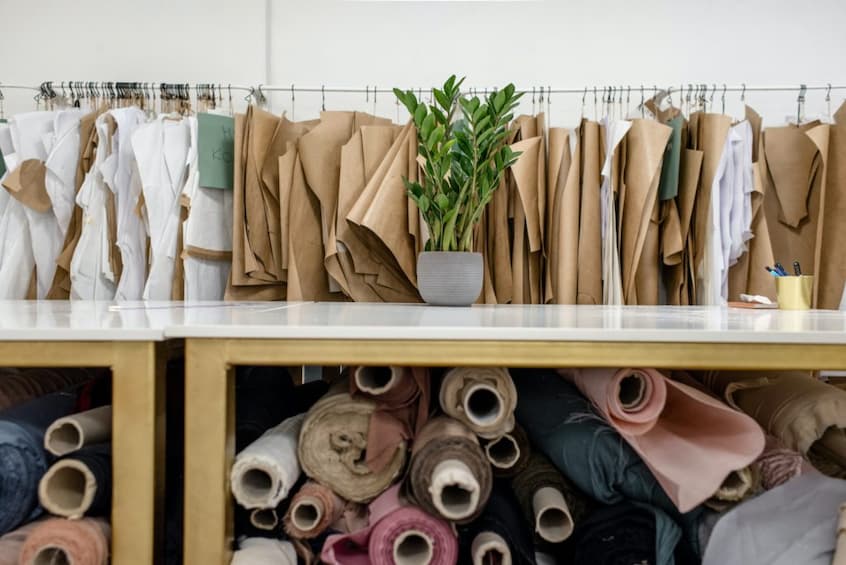
The Benefits of Organic and Ethical Fashion
Environmental consciousness has become not only exclusively an ecologists’ concern, but something that all of us need to put in practice. As we witness the harsh effects that our lifestyles have on the environment, only a few decide to make more serious changes for an eco-friendly lifestyle. This has led to the creation of various eco-friendly solutions that range from food to everyday household products and even clothing.
Sustainable clothing has seen a massive increase in popularity these past several years due to its benefits over conventional clothing. Organic fabrics are not only better for the environment, but provide aesthetic value and health benefits as well.
Contents
Organic Modern Clothing

Organic fabrics have started developing recently, so in order to catch up with the trends, the manufacturers have put tremendous effort into producing highly fashionable garments. The modern sustainable Australian designer dresses are elegant and versatile, great for both a casual daily outfit and a classy night out at a restaurant. They’re carefully tailored to outline your figure, giving off a vibe of effortless grace. The anatomical designs give you superior comfort, while the premium organic fabrics are soft to the skin and let it breathe.
These eco-friendly Australian designer dresses are also ideal for a relaxed day at the beach. Their lightweight and flowy construction makes them fit for even the hottest summer temperatures. The subtle stylish details create a lot of visual interest in these pieces; however, you can easily step up your look with simple jewellery and a matching handbag.
What Is Ethical Fashion?

The fast fashion industry has dominated the world for a long time. While it promises disposable clothing at a fast rate, it also poses numerous problems for society and the environment. Ethical fashion proposes a solution to these problems. The definition of ethical fashion is simple – it’s a fashion that strives to reduce the negative impact on people, animals and the planet. It’s a type of fashion that’s kind to the planet and the people throughout the whole production process – from seed to garment.
Clothing manufacturing is one of the most environmentally destructive industries. Because of this, ethical fashion industries have their garments in a closed-loop system, which minimises the amount of waste they send to landfills. The leftover fabric is often reused for making accessories, postage bags etc.
Ethical fashion industries take care of their workers’ well-being and pay them fair wages. They ensure a comfortable working environment and respect for their basic human rights. When it comes to dying their clothing, they choose eco-friendly processes like dying with natural dyes, closed-loop systems or recycling dyes. These methods result in quality vibrant colours that aren’t so different from the artificially obtained ones.
Are Ethical, Sustainable and Slow Fashion the Same Thing?
Although these three terms are closely related and often used as synonyms, they refer to different aspects of eco-friendly fashion. Ethical fashion cares about the rights of the people that manufacture the fabrics, the animals from which some of the materials are taken and the environmental impacts of the production of the clothing.
Slow fashion refers to both a mindset and a type of production. Fast fashion is trying to pump out as many clothes as possible in a shorter time, whereas slow fashion allows consumers to craft a relationship with the clothing that they buy. This slows down the process between the need for clothes and the end of a garment’s life.
Sustainable fashion focuses on moving fashion towards an environmentally conscious future.
What Are the Dangers of Fast Fashion?

Fast fashion is sold in high volume with a low-profit margin. It often results in low-quality clothing that’s frequently consumed by the masses. However, this is an unsustainable fashion choice for many reasons. A large portion of summer fashion falls into this category. Whether it’s low-quality beach accessories or vacation dresses, the production of these pieces poses a lot of dangers both for the workers and the environment.
When it comes to the workers in fast fashion, they’re often abused and exploited. They’re forced to work numerous hours and pump out as many clothes as possible while being paid well below the minimum wage. The working environments are often poor and the machines they use often malfunction and aren’t tested for their quality.
The method of colouring the fabric in the fast fashion industries causes great harm to the environment. They’re dying the clothing with chemicals and pollutants to achieve the perfect shades; however, these chemicals later go into the landfills or pollute rivers. In some countries, they say that you can easily tell the popular colour of the season by looking at the colour of the rivers, which perfectly conveys the tragic truth of these industries.
The fast-fashion uses artificially created fabrics. Most of these tend to irritate the skin and cause overall discomfort. They’re not as breathable and moisture-wicking as organic fabrics, so they’re especially bad for hotter temperatures.
This type of fashion is sadly dominant in today’s world; however, with the innovation of sustainable clothing, the rising alarm of the environmental damage and the work of activists, there could be a drastic change around the corner.
Conclusion
The environmental concerns between ethical and fast fashion differ greatly. Fast fashion constantly turns a blind eye to the unethical processes with which they make their products, as well as the toll that they take on the environment. According to some studies, the carbon footprint of creating one shirt is larger than driving a car for 35 miles.
On the other hand, exploitation of fashion workers is definitely not a thing of the past, as it’s actively happening to this day in various companies.
Less than one percent of the clothing that these workers produce is recycled, which means that thousands of tons of fabric is thrown away and it’s polluting the earth.
Ethical fashion is the next big thing in the fashion industry. It takes into consideration every aspect of the clothing’s production and keeps in touch with the latest trends. When you’re looking to upgrade your summer wardrobe with a new dress, make sure to choose from the range of sustainable ethical dresses.


No Comments